Members of the Socialist Equality Party and the International Students for Social Equality distributed 2,000 copies of the World Socialist Web Site perspectives article, “The Egyptian Revolution” at the London demonstration on Saturday in support of the Egyptian revolution. A number of those attending the protest spoke to the WSWS about their thoughts on the revolution and how the mass movement can be taken forward.
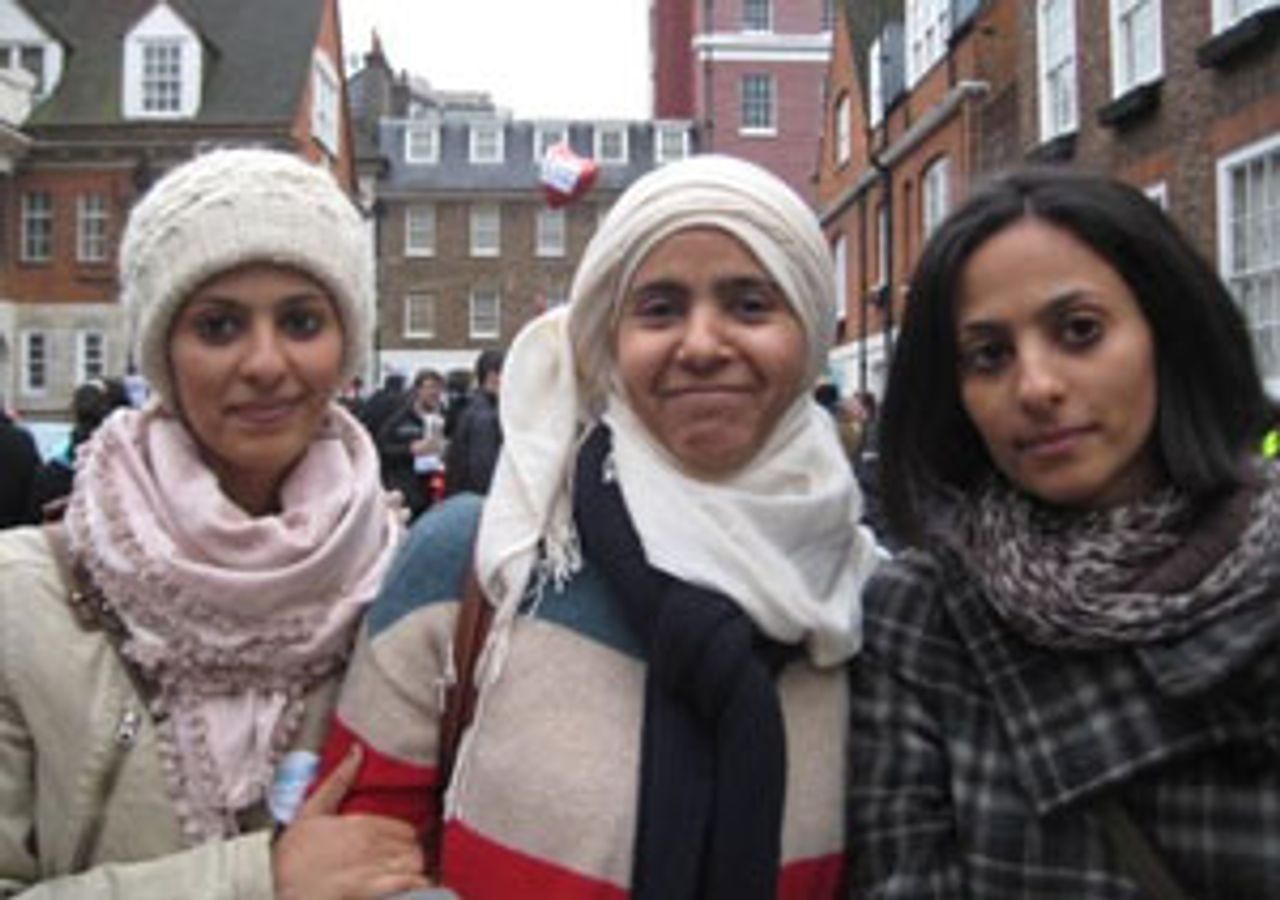 Samah, Salama and Sara
Samah, Salama and SaraStudents Samah, Salama and Sara said they came to the demonstration to honour those who had been killed in the uprising and said a memorial had been set up outside the Egyptian Embassy in their memory. Samah said they were martyrs of the struggle to get rid of Mubarak. Salama said, “We want Mubarak out. He has to go now. We can’t wait any longer.” Sara said the US government has supported his regime and they should not interfere anymore and get out.
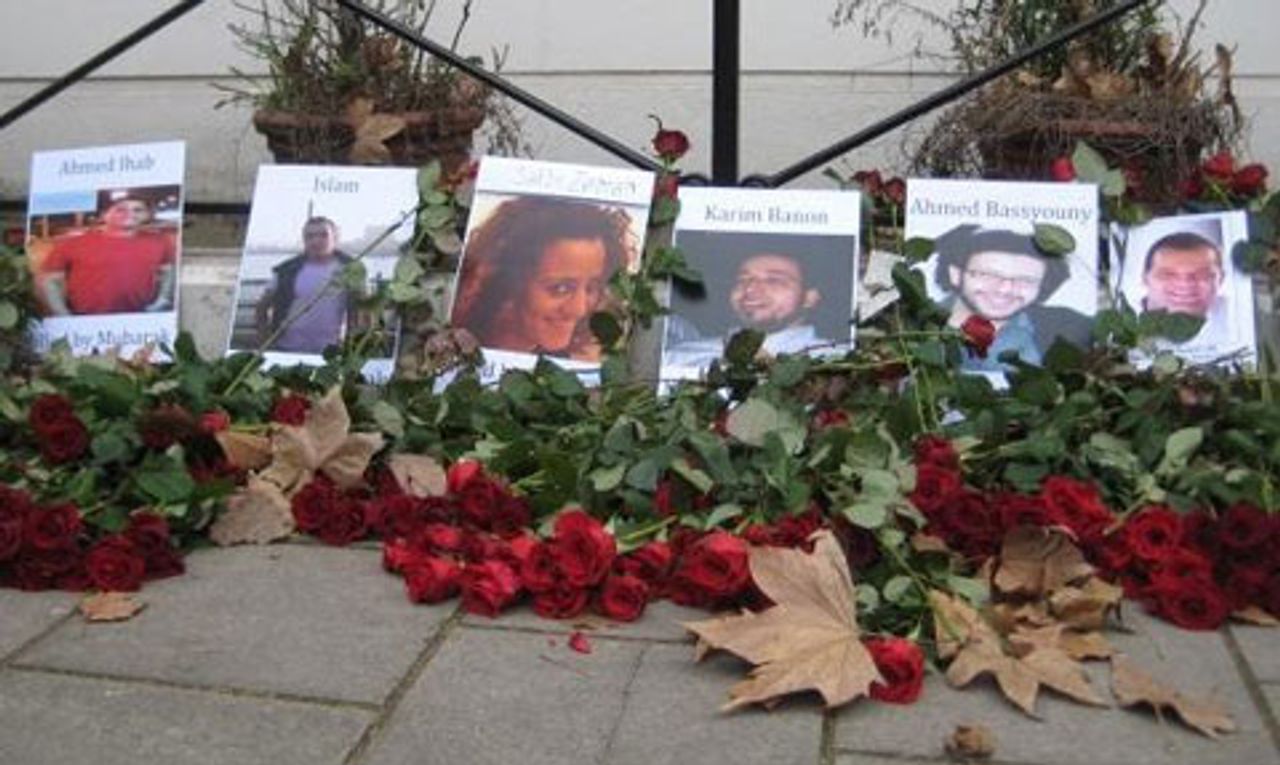 Memorial outside the Egyptian Embassy to those kiiled during the uprising
Memorial outside the Egyptian Embassy to those kiiled during the uprisingActress Amira Ghazalla said she thought, “Many people don’t understand that when the Egyptian people go in a mass they are a bit like the floods of the Nile. They’re unstoppable.”
She added, “It’s been many years since we have had a flood. This is a new flood. It brings some destruction, but it also brings with it the fruiting of the seed, what we call Taher al-Bahr. Even if there is suppression or butchery, I know something has really changed. Nobody knows what will happen next.”
Amira described how the young people in Egypt she works with “are born with no hope, no possibility of dreaming. But now they are very determined. They have woken us up. They have been suppressed for so long they are amazed themselves what has happened. They are very courageous. Eight were killed in one night. Can you believe it—2 million people came together in a square mile.”
Saadit and Parveez said why they had come. “Well I haven’t been to protest since 2003”, Saadit explained. “I demonstrated then against the war in Iraq.”
“As far as I was concerned, the Iraqis were innocent people and they shouldn’t have been linked to what happened in New York. It was a very unfair, very unjust war. Afghanistan was recovering from the war against Russia. They have suffered enough.”
Saadit and Parveez described the significance of the uprisings in Tunisia, Egypt and other parts of the Middle East. “People are waking up now, breaking from being mind-controlled, and seeking knowledge. It’s not only necessary to get the information but also to trust the sources. Now, people are much more aware, from certain media about what’s going on, and they just want peace. We want peace for everyone.
“Yesterday at Friday prayer, there were thousands of people praying in Tahrir Square, being guarded by the Christians, so you can see the brotherhood, the humanity.
“The Egyptians were suffering on so many levels, through class, poverty, oppression. People have to see beyond the official version of events. People have been divided into class, race, religion, and region. But now is the time to understand that despite our apparent differences, we still have the same needs, to think collectively, not just as individuals”, Parveez said.
Ash, a math teacher, who came to the demonstration with his wife Sarah, daughter Laashmi and mother-in-law, explained, “I came here to show solidarity with my fellow Egyptian people, all the people in Tahrir Square and all the other regions. It really is a terrible regime, which humiliated us, makes everybody poor, and downgrades the whole nation.
“I also want to show my feelings for those who have died for our revolution. Blood has been spilled in this revolution, and the government forces, the Mubarak regime, have taken our people from Tahrir Square and killed many and injured more than 5,000.
“All the regimes [in the Middle East] have the same issue—30 or 40 years of power, which is unacceptable. Its family and gangs are stealing money from the people. When they are overthrown, they take the money to the West, buy big palaces and mansions, to live like kings.
“We’re just fed up with it. We saw what happened in Tunisia with Ben Ali. They got rid of this tyrant who had put people in a very bad situation. Calling him an animal is too good for him. It’s a catastrophic situation, really, from Morocco to Bahrain.”
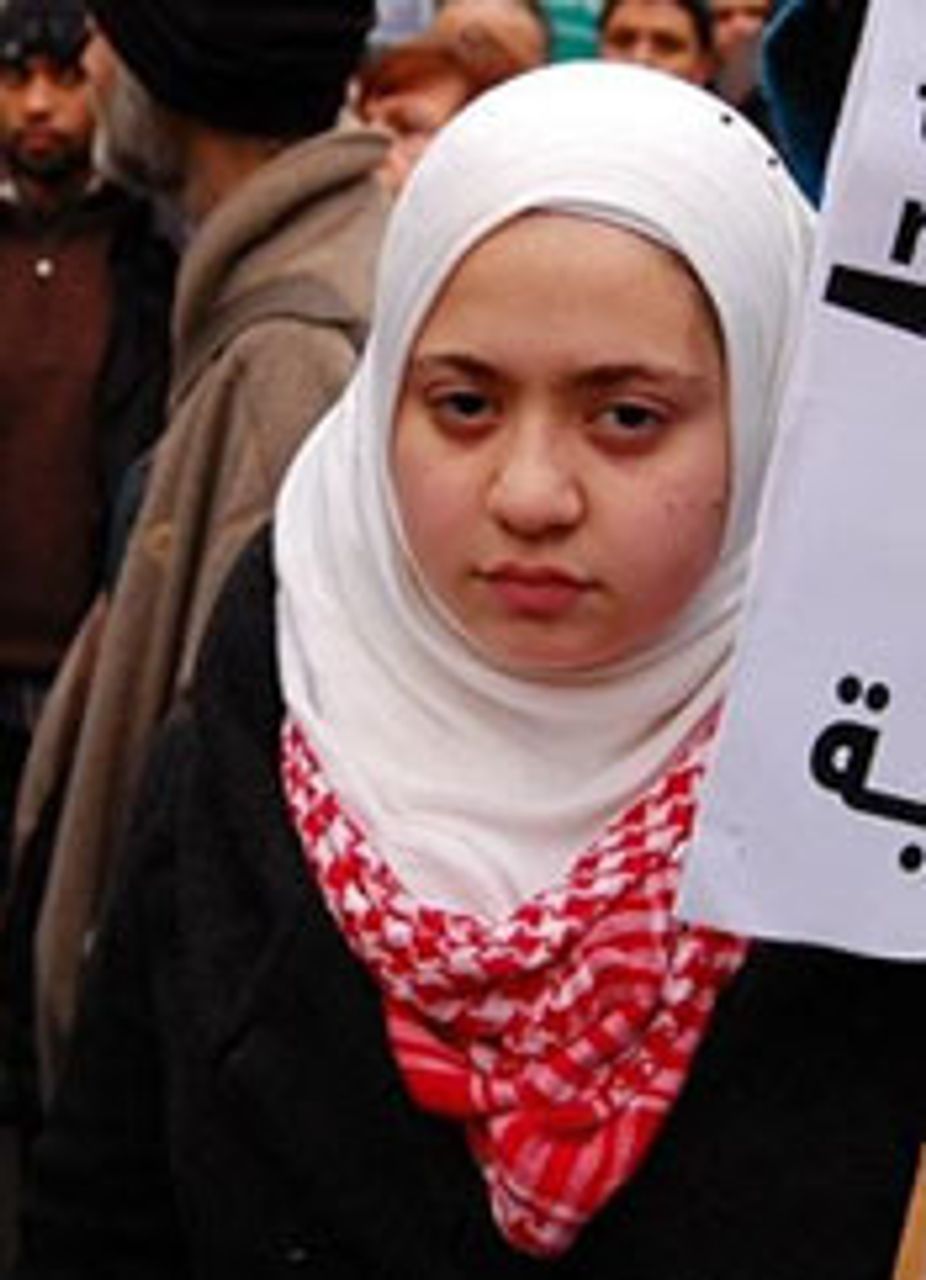 Quesi
QuesiQuesi explained she had been to student protests last year and came to the demonstration because “I care about this a lot, I’m Egyptian. People are really angry at the dictatorships. But there’s one more element to all this anger which is hope that we can actually overthrow them; they won’t outlive us, they can fall once the people are united.”
Quesi described how the bombing of a Coptic Christian church last month could have led to a lot of tension between the Coptics and Muslims. Explaining that this did not occur, she said, “Even the Christians in Egypt see this revolution as an opportunity to gain their rights along with Muslims. We can’t get our rights if any of these Mubarak types are in power.”
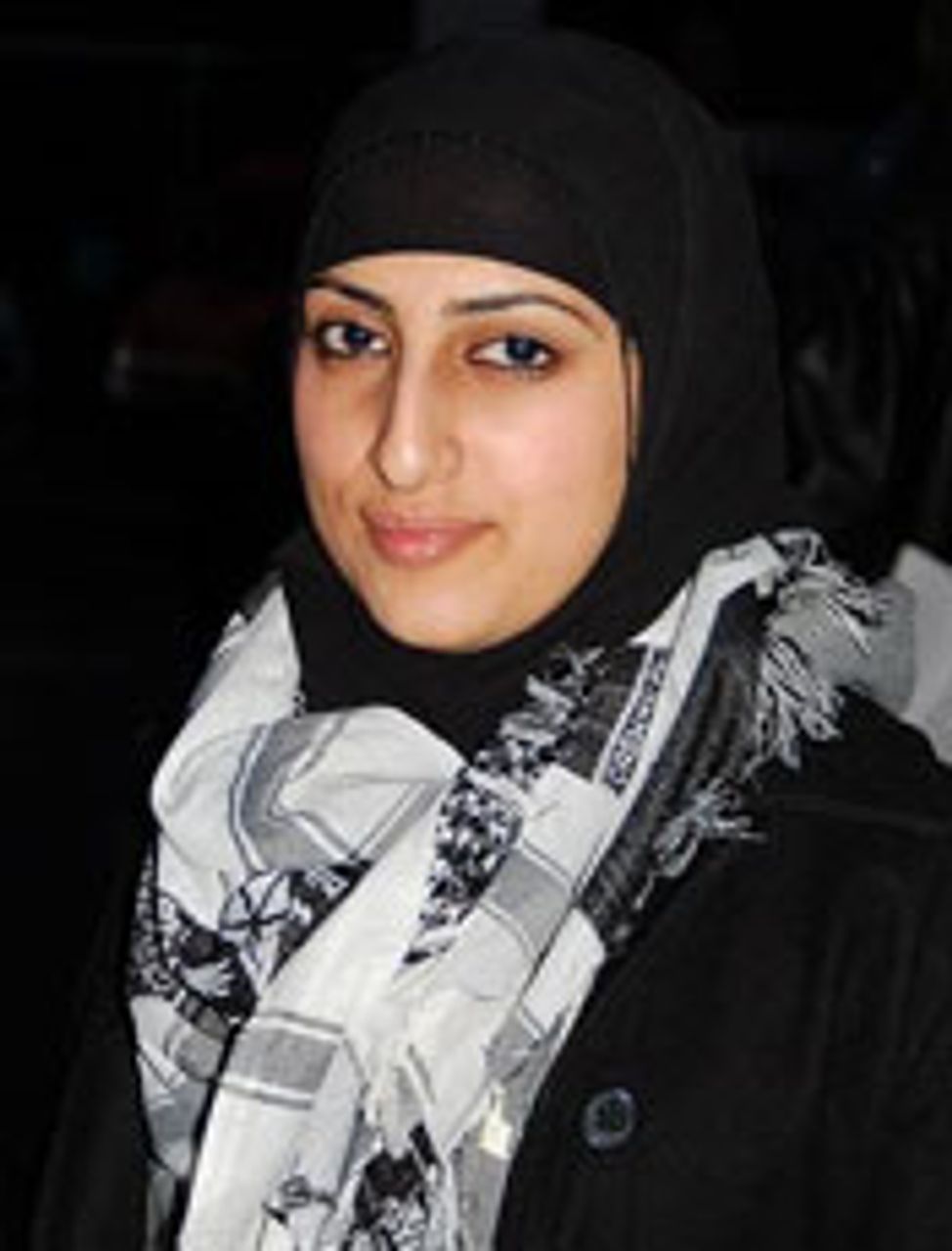 Ataama
AtaamaSeema and Ataama agreed that social inequality has reached huge proportions everywhere, necessitating revolution on a world scale. Ataama said, “Yes we need equality, freedom. If you’re going to have a revolution, it needs to be down to the people fighting for the revolution. We can make a change if we all stick together and get out there and make a change, wherever we are. Whether it’s Tunisia, here or Egypt. Tell them we’re not going to go away”.
She added, “I think you’re right in not tagging along with the Labour Party. Because they haven’t really got us very far. They have led us into two wars, killed thousands of people, and left people without food or basic rights. Babies are being born with deformities because of depleted uranium. The movement has to come from the people. Egypt and Tunisia are a prime example of this. They shouldn’t wait for Mubarak to fall, they should seize power—it’s theirs”.
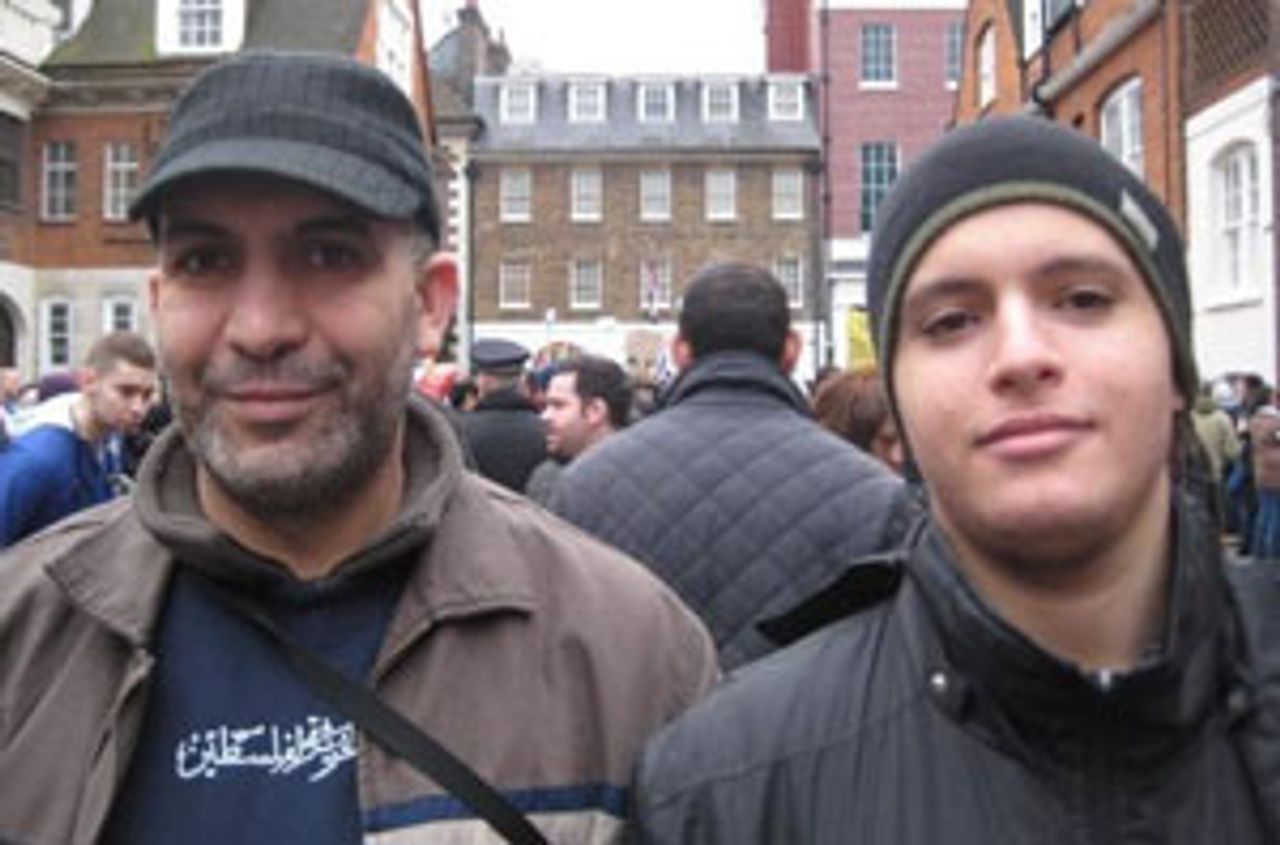 Mounir and his son Sofiane
Mounir and his son SofianeMounir and his son Sofiane came to support “our brothers and sisters in Egypt”. Mounir explained he had come to the UK from Algeria 19 years ago shortly after the government declared a state of emergency. Last week, Mounir said, the Algerian president said the same state of emergency would be lifted “very soon”. Mounir said he joined the Labour Party before it came to power under former Prime Minister Tony Blair. “We sent so many petitions to them to convince them not to go to war in Iraq and Afghanistan, but they ignored them.”
